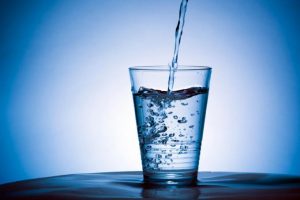The future of nanotechnology and water research
NPEP Newsletter, June 2016
 Technology has been critical in providing clean drinking water. Ancient civilisations believed heating water could purify it and, in centuries BC, Romans used aqueducts to convey water. Today’s water filtration and purification models are based on the orthodox tried and tested models developed in the 21stCentury. To put it simply, developing civilisations have been on a continuous journey to ensure water availability.
Technology has been critical in providing clean drinking water. Ancient civilisations believed heating water could purify it and, in centuries BC, Romans used aqueducts to convey water. Today’s water filtration and purification models are based on the orthodox tried and tested models developed in the 21stCentury. To put it simply, developing civilisations have been on a continuous journey to ensure water availability.
Most poor communities struggle to access clean water and, unfortunately, water availability and poverty have become interlinked. The pressures of climate change and population growth will also almost certainly lead to more widespread water scarcity.
It is imperative for South Africa as a country to be on the forefront of researching new ways and means to provide clean and safe water. A next step in water related innovation is towards nanotechnology driven solutions. Nanotechnology has been identified as technology that holds potential to provide long term solutions to resolving problems surrounding water quality.
South Africa is fast becoming a global player in research and development of nanotechnology that improves the quality of drinking water.
It is also important to note that water is one of the six main focus areas in the South African National Nanotechnology Strategy. SInnovation centres that have water research as a niche focus area have been established. One such centre is Unisa’s Nanotechnology and Water Sustainability (NanoWS) research unit.
NanoWS research unit is a strategic research niche at the College of Science, Engineering and Technology (CSET) that addresses current and emerging issues relating to water quality and water scarcity.
The unit makes use of conventional and innovative technologies that will help provide alternative water resources and ensure that such water is treated to acceptable levels suitable for its purpose, for example, for use as drinking water or any non-potable use such as industrial, agricultural or groundwater discharge.
The NanoWS research unit draws expertise from a number of researchers, collectively having vast experience. Their local researchers and international collaborators have answered a number of research questions pertaining to water quality and supply issues. The unit is also at the forefront of integrating nanotechnologies with existing water treatment practices, with the goal of optimising the efficiency of conventional water treatment technologies. Over the last 10 years the researchers at the unit have published numerous articles highlighting their capability in this area of research.
Conventional water treatment technologies include filtration, ultraviolet radiation, chemical treatment and desalination, whereas the nano-enabled technologies include a more diverse variety of different types of membranes and filters based on carbon nanotubes, nanoporous ceramics, magnetic nanoparticles and other nanomaterials.
The NanoWS Research Unit focuses on the development of nanotechnology enhanced membrane materials (and adsorbents) and water sustainability.
In this context, water sustainability refers to:
- Potable water production from both traditional water sources (fresh surface and ground water) and non-traditional water sources (contaminated surface and ground water, brackish groundwater and seawater),
- Advanced wastewater treatment to protect drinking water sources from contamination and to harvest fresh water, biogas, and fertiliser from wastewater,
- Production of clean, renewable (base load) power from salinity gradients.
Beyond the application and science of nanostructured membranes for use in water treatment and water desalination, their research plan includes the development of novel nanomaterials as adsorbents, catalysts and sensors for water purification and understanding the fate of these engineered nanoparticles in the environment.
The unit also aims to monitor and characterise natural organic matter (NOM) in water and its treatability throughout the water treatment train, especially after water disinfection which results in disinfection by-products that often pose a serious health threat.
The research division’s vision is to become the premier organisation to provide nanotechnology-based water treatment solutions and services for South Africa through ground breaking water research and training programmes.
In the first five years of their research programme they are focusing on synthesis, characterisation and development of nanotechnology-based membrane materials, adsorbents and nanomaterials designed for water sustainability applications, lab-scale performance testing, mechanistic modelling and benchmarking.
All of these basic research activities are designed to facilitate rapid optimisation, scale-up and commercialisation potential of intellectual property developed through the unit’s strategic funding. In the next five to ten years, the research programmes will move beyond lab-scale synthesis, characterisation and testing into prototype fabrication and field-testing of the most commercially promising innovations working with appropriate manufacturing partners, industrial and municipal end users.
NanoWS mission is to become a hub of applied sciences and engineering research activities at the emerging interfaces of nanotechnology and water purification, focusing on the production and application of advanced materials.
The ultimate goal is to develop sustainable solutions that can be commercialised and to train and educate post-graduate students to become the next generation experts in the field of nanotechnology and water treatment.
The world is changing at a rapid rate and so are the needs of the local and international human population. In order to keep up with the high demand for clean and safe water we need more institutions that focus on the latest research. These institutions will in turn need the support of the greater academic, corporate and public sector, and only time will tell if these efforts will yield the projected results.

South African scientist honoured
Water sustainability and nanotechnology
Nano-composites could provide a solution to clean and safe water
The future of nanotechnology and water research
7th International Conference on Advanced Nanomaterials (ANM2016)
Nanostructured Materials Conference (NANO 2016)
International Conference on Nanomedicine and Nanobiotechnology (ICONAN 2016)
